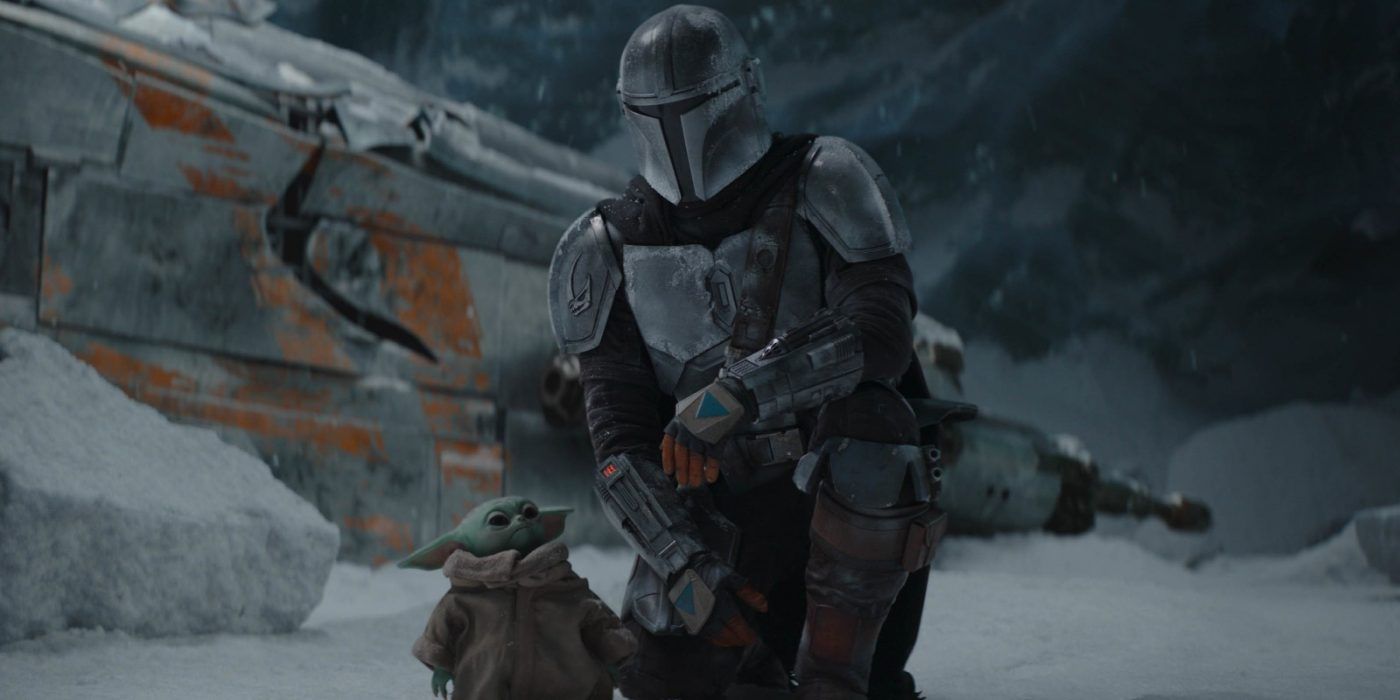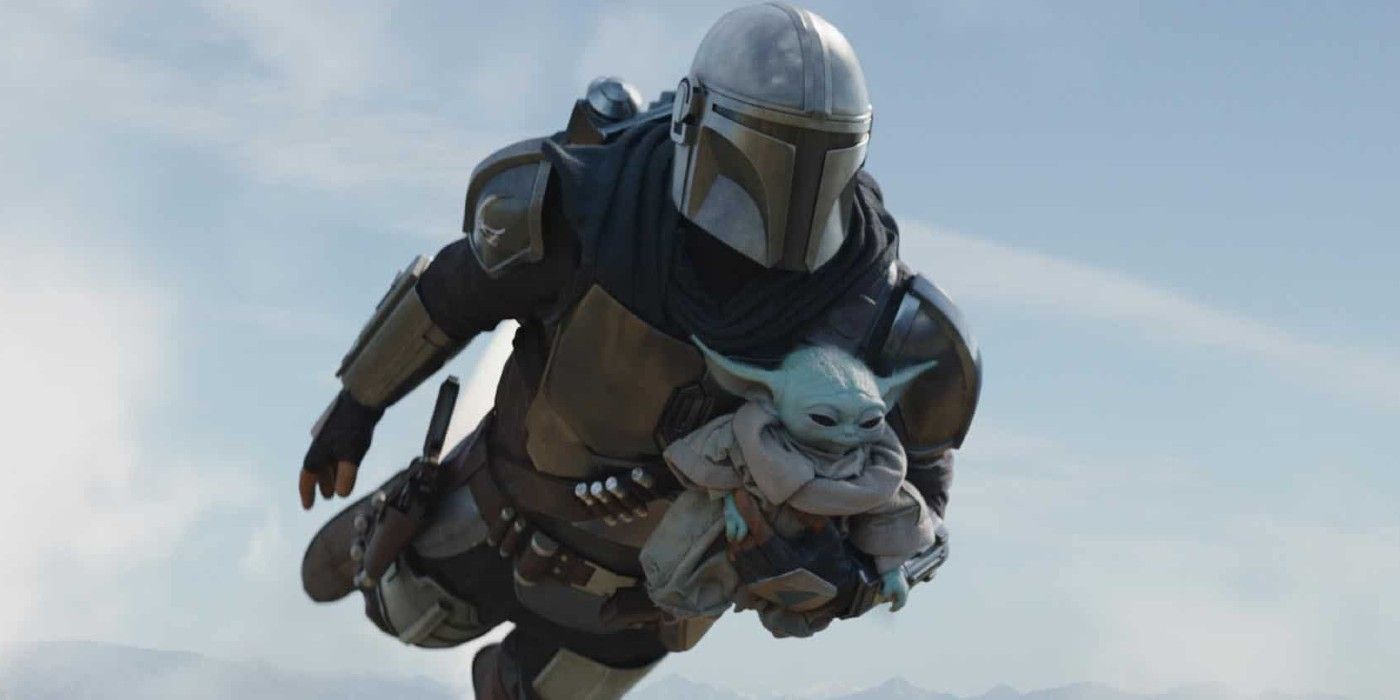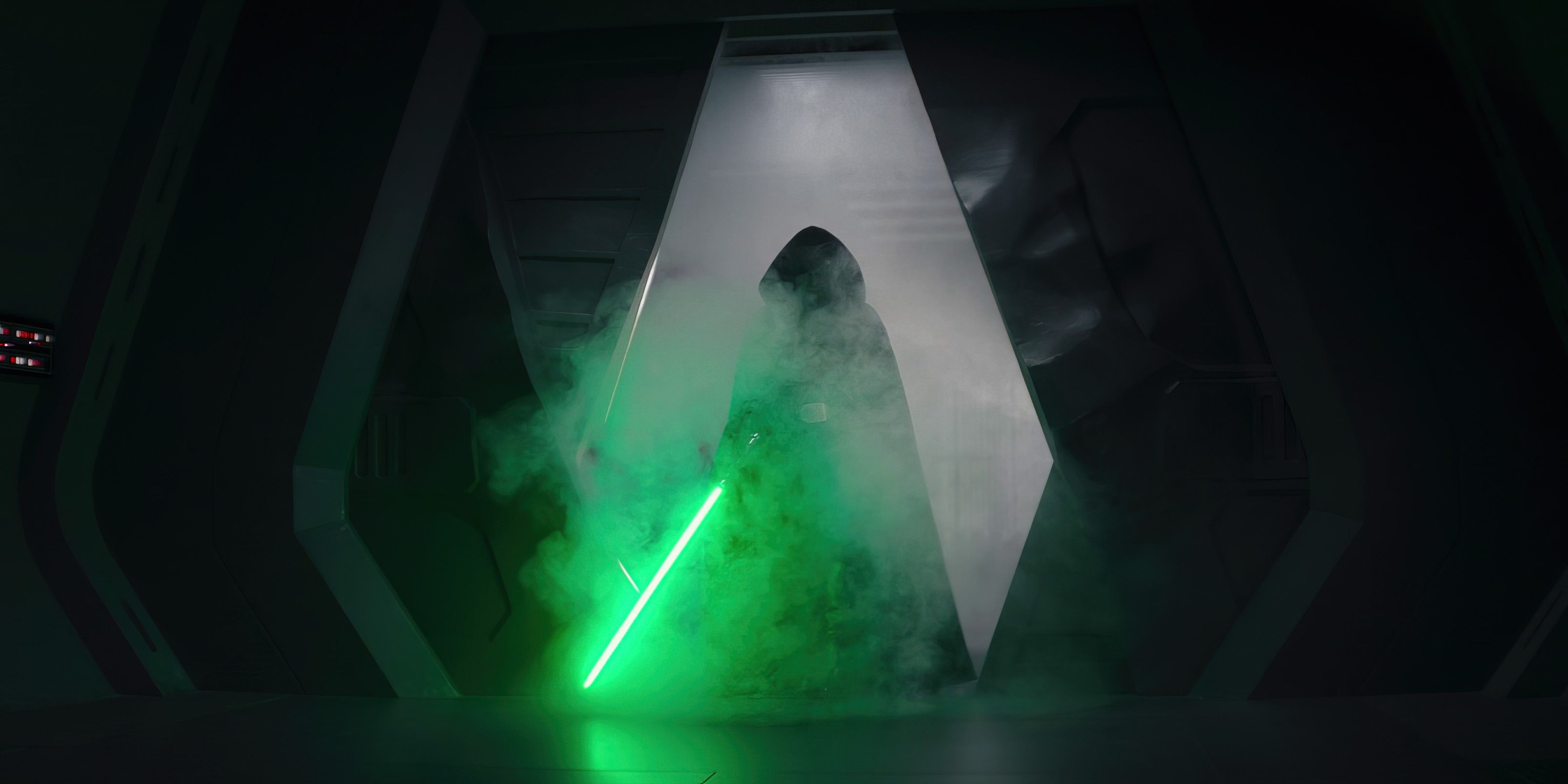The newer Star Wars movies, from the sequel trilogy to stand-alone movies like Solo: A Star Wars Story, haven’t exactly been the breakaway critical and box office success Disney probably hoped. There’s a lesson Star Wars properties going forward can take from TV and streaming series to try to change that.
It isn’t all about good writing, but as with every good piece of entertainment, it starts there. And yet it’s hard to sustain the argument that Star Wars movies haven’t had good writers, or good directors. The sequel trilogy suffered from a lack of coherent storytelling, more than anything. Solo: A Star Wars Story and Rogue One: A Star Wars Story had many production issues and are the patchwork result of more than one vision. All could have been much better with a consistent, unified idea. TV and streaming series, however, are the clear blueprint of how to tell better stories going forward.
The Mandalorian, in particular, shows the way. The show started with a character that wasn’t familiar to audiences and gave it the chance to grow over the course of two seasons. There was no clunky exposition, no rush for people to just understand his motivations. Instead, the show set up the main character by setting up his relationships with the people around him, and then expanded on both, to great results. Going into season 3 of The Mandalorian, fans feel like they know Mando (or technically Din Djarin), they know Baby Yoda (or Grogu, but who’s paying attention to real names around here?), they know many of the supporting characters around them, and more importantly, they are interested in their dynamics.
Star Wars movies going forward could benefit from the show’s approach of giving the characters room to grow, but they could also benefit from another TV approach. In general, The Mandalorian, and the animated Star Wars: The Clone Wars and Star Wars: The Bad Batch, have been dedicated to telling smaller-scale stories. Even if they exist within a context of a big issue happening in the background, the shows have stayed grounded in the immediate. This has allowed fans to fully grasp the issues that are being presented, and the consequences. The more the storylines are focused on day-to-day issues, instead of big galaxy-changing problems, the easier it is for people to relate.
The stakes, however, have remained high, even with smaller-scale stories, and this is an important lesson for Star Wars movies to take going forward. Not every movie needs to involve a big Rebellion, a life-changing event, the same character archetypes, and much less a Death Star. When characters are developed correctly, the stakes can remain high by just involving the characters fans have come to care for. In fact, stakes centered around characters are always much more effective than stakes with universe-changing implications, particularly, in fantasy. It’s easier to care for Baby Yoda’s immediate fate than it is to care about a possible second Empire taking over a world fans don’t inhabit.
Perhaps the greatest success of the TV and streaming series has been the recognition that nostalgia might be the reason some fans tune in, but it shouldn’t be the reason they stay. Fans aren’t looking for a copy of the original trilogy, or for the same character archetypes to be represented, with the same results. At this point, fans are looking for new stories set in a world they know, one they feel a part of. That doesn’t require centering every story on a character fans have seen before. It doesn’t even require nostalgia being the driving factor.
Not that nostalgia can’t and shouldn’t play a part in what Star Wars will do going forward. But if The Mandalorian has proven anything, is that there’s an interest in more stories set in the Star Wars universe, and nostalgia doesn’t have to carry the entire thing. Fans will enjoy every wink to the established canon, but they don’t require them to move the story forward. All they require is basically what every story requires: good characters, a great storytelling arc, and interesting dynamics. The rest is just about setting those stories in a world that people have already invested in.
If the Star Wars franchise is going to succeed not just on TV and streaming, but on the big screen once again, it would do well to take some lessons from how shows have built characters and pushed the story forward. It isn’t anything groundbreaking, or too complicated. The world of Star Wars is already so rich that there are hundreds of avenues that could be explored. As long as characters are given room to grow, the stories stay smaller in scale, while keeping the stakes high, and the nostalgia isn’t overdone, Star Wars can continue to enchant audiences for generations to come.



